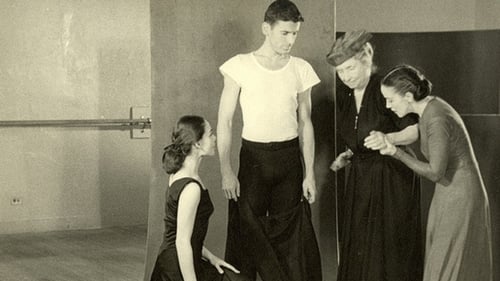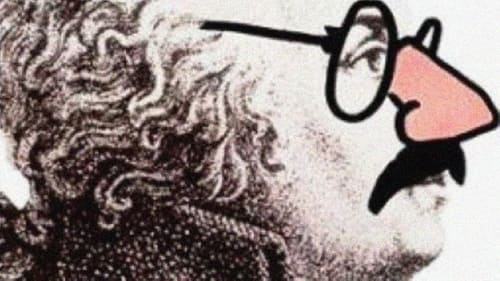The Stone Carvers (1984)
Genre :
Runtime : 30M
Director : Marjorie Hunt, Paul Wagner
Synopsis
A look at some of the last stone carvers working in the United States, those completing the sculptures adorning the Washington National Cathedral. They discuss their craft and the cultural forces which helped define it, as well as the fading use of stone ornamentation in architecture and the history of stone carving, and they tour the cathedral to point out the history behind some of the work.

On May 8th, 1945, writer, director Norman Corwin broadcast ON A NOTE OF TRIUMPH, an unforgettable homage to the end of war in Europe. This film shines a light on a lost work of genius, and examines it's haunting resonance to today's current events.

Narrated by actress Katharine Cornell and filmed in black and white, it spends the first 24 minutes introducing viewers, through newsreels, interviews, and old photographs, to the story of the deaf and blind disabled-rights pioneer. News footage shows her international appearances and visits with heads of state, including President Eisenhower allowing her to feel his face. The second half takes a day-in-the-(exceptional)-life approach to Keller's existence circa 1955. Made just 13 years before her death, Keller's famed tutor-translator-friend Anne Sullivan had already died, leaving her live-in replacement, Polly Thomson, to share the film's focus. From the time Keller takes her morning walk along the 1,000-foot handrail around her yard through her workday to her nightly reading of her Braille Bible, her serene acceptance of her life will amaze and inspire.

This 1991 Academy Award®-winning documentary uncovers the disastrous health and environmental side effects caused by the production of nuclear materials by the General Electric Corporation.

Oscar Winning short documentary

Oscar Winning documentary short about Charlie Clements, a Vietnam War pilot who was convinced by his experiences in the war that he should become a doctor working behind enemy lines.

In September, 1959, six Europeans leave Cook's Bay on the southern coast of Dutch New Guinea, now West Papua or Irian Jaya, to trek north to the far side of the island. The journey (450 miles, as a crow flies) across unmapped territory took seven months; three Muyu porters died. Near both coasts, the expedition met villagers who invited them to observe rituals and live with them. In the interior, all villagers kept them at bay, and they depended on air lifts from Hollandia for food and supplies. They climbed above 10,000 feet, built 14 bridges, and fought leeches and malaria. The narrator focuses on describing Stone Age savages, headhunters, and cannibals.

Filmmakers Sue Marx and Pamela Conn document the romance between Sue's father Louis Gothelf and Reva Shwayder, each in their mid-80s. Both artists and residents of the Detroit suburbs, they met on a group tour of England after being widowed, and quickly formed a strong connection over shared interests. The two discuss concerns over living together without being married; Louis also talks about his caring for his first wife during her ten-year struggle with Alzheimer's disease, while Reva talks about the deaths of two sons several years after her husband's death.

At the height of Reign of Terror Maximilien Robespierre orchestrates the trial and execution of several of his fellow leading French revolutionaries including Georges Danton.

Toward Independence is a 1948 American short documentary film about the rehabilitation of individuals with spinal cord injuries.

Letters, Riddles and Writs is a one act opera for television by Michael Nyman broadcast in 1991.

Soviet documentary about the defeat of the Nazis near Moscow. Warning - graphic images. Edward G. Robinson narrates the English language version.

The O'Dell farm is on the rocks. A non-traditional accountant comes with a variety of ways to save the farm.

Angel and Big Joe is a 1975 American short drama film directed by Bert Salzman and starring Paul Sorvino and Dadi Pinero. It tells the story of a friendship between a migrant boy and an electrician who has greater ambitions. The film won an Oscar at the 48th Academy Awards in 1976 for Best Short Subject.

An African tribe in the Eastern Nigerian village of Umana work to build a maternity hospital, with the aid of government officials, and against the opposition of some tribal members.

"To Be Alive!" was designed to celebrate the common ground between different cultures by tracing how children in various parts of the world mature into adulthood.

Princeton: A Search for Answers is a 1973 American short documentary film, directed by Julian Krainin and DeWitt Sage, and produced for the Princeton University Undergraduate Admissions Office as a recruiting film. In 1974, it won the Academy Award for Best Documentary (Short Subject) at the 46th Academy Awards.

The short drama film follows the daily life of the Juan and Jorge, two brothers living on the streets of Mexico City. It won an Academy Award in 2001 for Best Live Action Short Film.

This John Nesbitt's Passing Parade short tells the story of 18th Century French physician Dr. Philippe Pinel, who initiated enlightened, humane treatment of the mentally ill.

This biographical docudrama traces the life of Dr. Albert Schweitzer, from his birth in Alsace, up to the age of 30 when he made the decision to go to French Equatorial Africa and build his jungle hospital. The latter half of the film encompasses a full day in the hospital-village, following the octogenarian Samaritan in his daily rounds.

Twenty-two prominent American women discuss their activism for nuclear disarmament and their motivations in seeking the end of the arms race.








